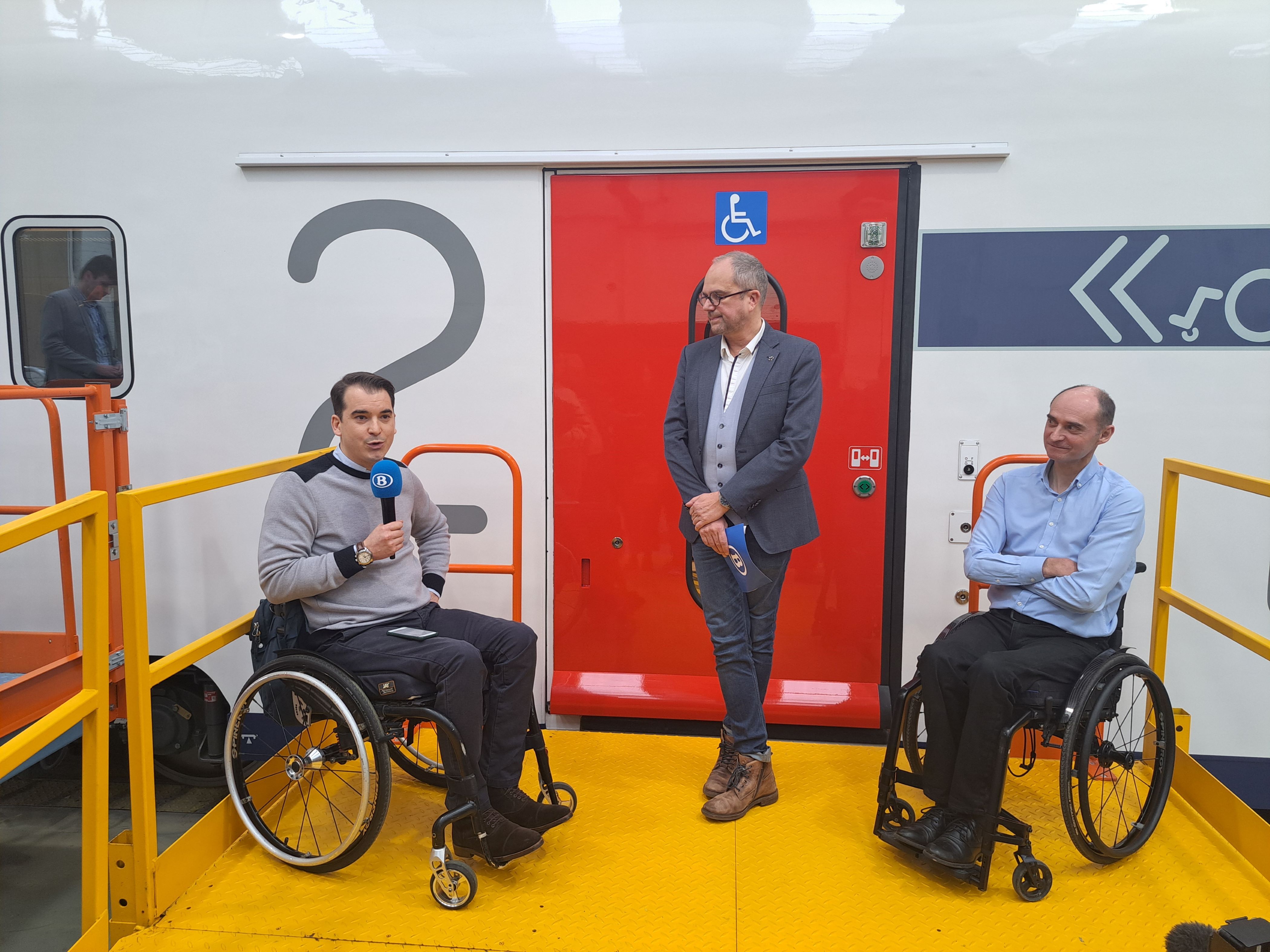Belgian railway operator presents first autonomously accessible train carriage

The Belgian railway company SNCB has presented the first of 130 autonomously accessible M7 double-decker coaches at manufacturer Alstom in Bruges. "Besides safe and comfortable transport, accessibility is an integral part of our policy," said SNCB CEO Sophie Dutordoir.
The new carriages have a door with a boarding height of 76 centimetres, the standard height of the latest platforms. Before the door opens, a step slides out onto the platform. Adjustments were also made inside with wider corridors, extra handholds, lower push buttons and adapted toilet facilities.
"When M7 carriages were first ordered in 2015, accessibility was not sufficiently taken into account," says Dutordoir. "That was a missed opportunity. So in 2018, we decided to make autonomous accessibility a priority and order 130 autonomously accessible double-decker coaches."
Its development drew on the expertise of advocacy organisations such as the High Council for Persons with Disabilities, CAWaB and Unia. "It is important that we are involved in plans for greater accessibility from the beginning," says Nino Peeters, president of accessibility organisation CAWaB. "Nothing about us without us." He invited Mobility minister Georges Gilkinet of francophone green party Ecolo to sit in a wheelchair and try the new carriage.
©BELGA VIDEO LINDE WALTERS
Stations in Belgium will also undergo changes. Currently, stations have three different heights, meaning existing trains never reach the same height as every platform. The management contract between SNCB and the federal government includes a plan to have 180 autonomously accessible stations by 2032. Currently, 103 stations are fully accessible.
"This is a strong positive signal: we want everyone on board," said Gilkinet. "Everyone should be free to choose their means of transport, and even more so to choose the safest and most environmentally friendly means of transport. For the first time, there really is a clear vision for accessible trains, and this is clearly stated in the 10-year management contract."
The new trains are needed so SNCB can replace older trains. However, Alstom is facing a 2.5-year delivery delay. "That means that SCNB has to use these older trains, which are more sensitive to breakdowns, for longer than planned. And that is damaging to the punctuality of the trains," Dutordoir said.
CAWaB president Nino Peeters, SNCB spokesperson Vincent Bayer and Leuven Toegankelijk spokesperson Sam Michiels during the presentation of the first autonomously accessible train at the Alstom site in Bruges, 15 February 2024 © BELGA PHOTO LINDE WALTERS
Related news
